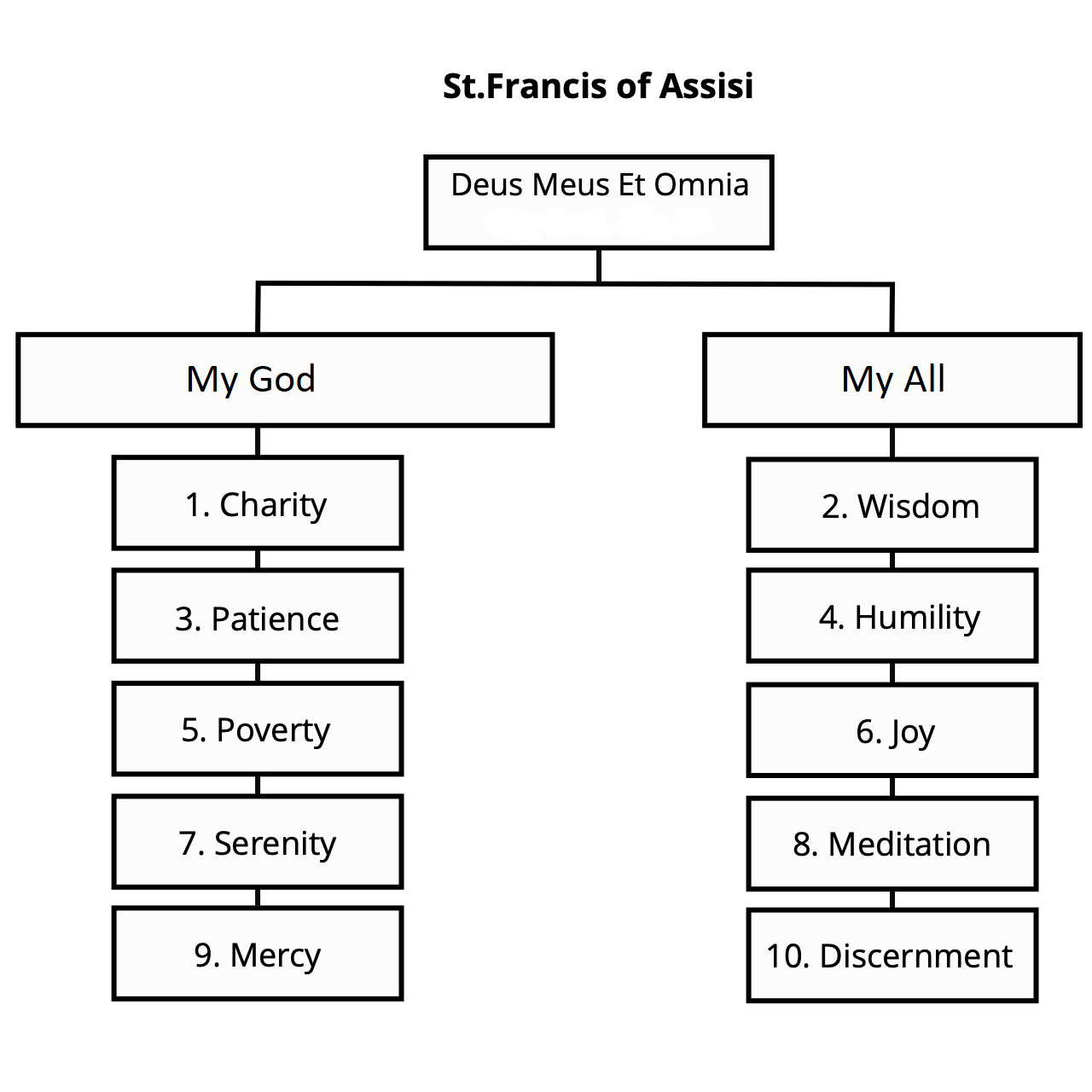|
“Charity” – In honouring the Way of Heaven, there is no fear
“There is no fear in love.” (1 John 4:18) When we believe in God’s favour, we live naturally in love. As we have one Heavenly Father, we can love and care for the living. As Heaven moves, we respect the environment and ecology and honour the Way of Heaven; as Humans never rest, we build a harmonious world, where Heaven and humans are one.
Through learning about Christ, students develop the Christian spirit of honouring God and loving others, a heart of gratitude for all things, an appreciation of the Franciscan spirit of environmental protection, a love of people and things, a willingness to be kind and courageous, and a care and love for all people and things.
“Wisdom” – With wisdom and virtue, there is no ignorance
“The beginning of wisdom is the sincerest desire for instruction, and concern for instruction is love of her.” (Wisdom 6:18) Wisdom helps people understand and distinguish right from wrong, eliminating blindness, ignorance, foolishness, and hypocrisy. With wisdom and virtue, we seek the truth and rejoice in the good.
Through teachers’ guidance and encouragement, the curriculum is immersive and inspires students to be self-reflective. Learning and teaching does not only enhance knowledge and encourage creativity, but also cater for students’ individual needs and social development. We wish for our students to be able to think independently, discern right from wrong, and persist in the truth.
“Patience” - With self-discipline and tolerance, there is no anger
“Whoever is patient has great understanding, but one who is quick-tempered displays folly. ” (Proverbs 14:29) Patience begins with self-discipline. Being calm in times of adversity and resilient in times of hardship. Patience leads to maturity, develops tolerance, and overcomes anger.
Love is patient. Students learn obedience, self-restraint, and self-discipline so that they can appreciate the spirit of discipline, generosity, tolerance, and perseverance. They are tactful and generous in their dealings with others, respectful of their teachers, and friendly to their peers.
“Humility” - With goodness and self-reliance, there is no disturbance
“Humility goes before honour.” (Proverbs 15:33) Humility allows one to recognise one’s own strengths and weaknesses and to resist pretence. Relieving inner disturbances by not living through the eyes of others and benefiting from dignity and self-improvement by taking the initiative to develop one’s good nature.
Students develop a modest and humble character and learn to appreciate themselves as well as others without self-praise or arrogance, promoting the equality of all people in their diversity and building a harmonious world.
“Poverty” - With contentment and frugality, there is no covetousness
“Blessed are the poor in spirit, for theirs is the kingdom of heaven.” (Matthew 5:3) This is translated to: neither serving nor being served by things, cherishing what one has, not what one wants, being happy with what you have, avoiding quick success or profit and consumerism, and being steady and progressive, not money-minded, but simple and frugal.
Students neither have regard for material things nor indulge in materialistic desires, and they embrace a simple and frugal life. They appreciate all things, are grateful, learn to be hardworking and pragmatic, are content with what they have, and are spiritually rich.
“Joy” - With generosity and positivity, there is no avarice
“A joyful heart makes a face cheerful.” (Proverbs 15:13) True joy comes from learning to be useful, learning to transcend oneself, and meeting challenges. Selfishness only comes from indolence and over-ambition, delighted in learning and be hardworking. There is no avarice when it comes to giving.
By relying on the joy of the Lord, students are neither overbearing nor servile, allowing them to have the right values and outlook on life, a vision and hope for life, and a willingness to care for others and share with them.
“Serenity” – With peace and perseverance, there is no anxiousness
“But whoever obeys me dwells in security, in peace, without fear of harm.” (Proverbs 1:33) Tranquillity can be far-reaching; serenity teaches one to be at peace, knowing when to stop before one can persevere in one’s actions towards the path of greatness. Serenity overcomes loneliness, helping to cope with changes and relieve anxiousness.
Through a variety of curricular activities, students enjoy structured and balanced development. They can feel and experience the peace of God, rely on Him, lift their worries, and renew their strength through the rest of the Lord.
“Meditation” – With knowledge and reflection, there is no dissipation
“Happy those who meditate on wisdom and fix their gaze on knowledge .” (Sirach 14:22) Deep reflection leads to deliberation; meditation prevents carelessness. Noise distracts and causes dissipation; knowledge and reflection help the mind concentrate and stay focused.
Students delight in learning, deep reflection, and deliberation, thinking twice before acting, are willing to consider the facts from several perspectives, seek the Lord’s way in a spirit of silence, guard themselves from temptation, and measure the world according to justice and truth.
“Mercy” – With benevolence and righteousness, there is no excess
“Blessed are the merciful, for they will be shown mercy .” (Matthew 5:7) Benevolence is the way to learn compassion and generosity, and to help others with an open mind, to be compassionate and not excessively harsh to others; to be strict with oneself and not to shirk responsibilities, to resist oppressing peers and belittling the weak and to strive for charity and righteousness.
Students are encouraged to volunteer, to care for and help the poor and the oppressed, to support the weak, to serve others, to uphold righteousness, to adopt “loving others as themselves” as an important aspect of their learning experience, and to transform themselves by serving others.
“Discernment” – With sincerity and integrity, there is no hardness of heart
“The wise are called to the Way by their discernment .” Reflection leads to discernment; sincerity comes from integrity. Integrity sees through false values and sincerity helps others pursue the truth. Discernment opens the mind to the truth and does not harden the heart.
Students are committed to the Franciscan spirit, honouring God, loving others, cherishing things, being sincere in their hearts, being free from prejudice and selfishness, being open-minded, seeking common ground while reserving differences, and pursuing truth, goodness, and beauty.
|







